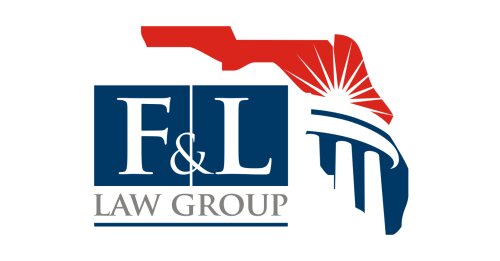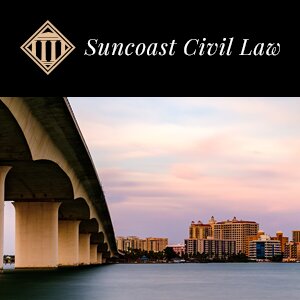Best Nursing Home Abuse Lawyers in Florida
Share your needs with us, get contacted by law firms.
Free. Takes 2 min.
Or refine your search by selecting a city:
List of the best lawyers in Florida, United States
About Nursing Home Abuse Law in Florida, United States
Nursing home abuse refers to any situation where residents of long-term care facilities experience harm or neglect by staff, caregivers, or other residents. In Florida, thousands of families rely on nursing homes to care for their loved ones. Unfortunately, not all facilities provide the quality of care required by law, and some residents suffer from abuse or neglect. Nursing home abuse can take many forms, including physical, emotional, sexual, or financial abuse, as well as neglect of basic needs such as food, hygiene, or medical care. Florida law provides specific protections for nursing home residents and establishes avenues for holding facilities accountable for violations.
Why You May Need a Lawyer
If you suspect nursing home abuse or neglect, navigating the complexities of state and federal regulations can be overwhelming. Legal help is often needed in situations such as:
- Unexplained injuries, bruises, or fractures suffered by a loved one in a facility
- Signs of dehydration, malnutrition, or poor hygiene
- Verbal complaints about staff mistreatment, intimidation, or threats
- Sudden changes in financial accounts or loss of personal belongings
- Insufficient staffing or lack of qualified personnel
- The facility is unresponsive to concerns or refuses to provide medical records
A lawyer can help investigate your claims, gather evidence, ensure compliance with all legal procedures, and advocate for fair compensation or other remedies. Legal guidance is especially important when dealing with insurance companies or pursuing claims under Florida’s unique nursing home laws.
Local Laws Overview
Florida has rigorous statutes intended to protect the rights of nursing home residents. The most significant laws include the Florida Statutes Chapter 400, which addresses nursing homes and associated facilities, and the Florida Resident Bill of Rights. Key aspects of local law include:
- Resident Rights: Every nursing home resident in Florida has enumerated rights, such as the right to dignity, respect, privacy, access to medical care, and freedom from abuse and neglect.
- Mandatory Reporting: Health care providers, staff, and any concerned citizen must report suspected abuse to the Florida Department of Children and Families.
- Civil Claims: Victims or their families can file lawsuits for damages resulting from abuse, neglect, or violations of resident rights. Florida law allows for recovery of medical costs, pain and suffering, and in some cases punitive damages.
- Statute of Limitations: Generally, lawsuits must be filed within two years from the date the abuse or neglect was or should have been discovered.
- State Oversight: The Florida Agency for Health Care Administration regulates nursing home facilities and handles complaints of abuse or neglect.
Frequently Asked Questions
What are the most common types of nursing home abuse in Florida?
Physical abuse, emotional abuse, financial exploitation, sexual abuse, and neglect are the most common forms seen in Florida nursing homes.
How do I know if my loved one is being abused or neglected?
Warning signs include unexplained injuries, weight loss, untreated medical conditions, emotional withdrawal, fear of staff, poor hygiene, and changes in behavior.
What should I do if I suspect abuse?
Document any signs of abuse, talk to your loved one if possible, and report concerns to facility management, the Florida Abuse Hotline, or law enforcement for immediate threats.
Who regulates nursing homes in Florida?
The Florida Agency for Health Care Administration oversees licensing, complaints, and inspections of nursing homes, while the Department of Children and Families investigates abuse claims.
Can I sue a nursing home for abuse or neglect?
Yes, Florida law allows victims and their families to file civil lawsuits for damages resulting from abuse, neglect, or violation of resident rights.
How long do I have to file a nursing home abuse claim in Florida?
The statute of limitations is generally two years from when the abuse or neglect was discovered or should have been discovered, although certain exceptions may apply.
Is nursing home abuse a crime?
Yes, severe cases of abuse or neglect may be criminal offenses. Law enforcement can investigate and prosecute individuals or administrators responsible for criminal misconduct.
What compensation can I receive in a nursing home abuse case?
Victims can pursue compensation for medical expenses, pain and suffering, emotional distress, and sometimes punitive damages meant to punish egregious conduct.
Are nursing homes required to report suspected abuse?
Yes, Florida law requires nursing home staff and certain professionals to report any suspected abuse or neglect to the proper authorities.
How can a lawyer help me with a nursing home abuse case?
A lawyer can investigate the facts, navigate complex regulations, gather evidence, negotiate with insurance companies, and represent you in court to help achieve a just outcome.
Additional Resources
- Florida Agency for Health Care Administration - regulates and licenses nursing homes
- Florida Department of Children and Families - investigates abuse and neglect reports
- Florida Long-Term Care Ombudsman Program - advocates for residents of nursing homes
- Florida Abuse Hotline - resource for reporting suspected abuse
- Local law enforcement - for immediate safety concerns
- Community legal aid organizations - may offer free or affordable legal help
Next Steps
If you believe your loved one is experiencing nursing home abuse in Florida, take action right away:
- Ensure the immediate safety and wellbeing of your loved one. Move them if necessary and seek medical attention for any injuries.
- Report your concerns to facility management and appropriate authorities, such as the Florida Abuse Hotline or the police for emergencies.
- Document all incidents, including dates, times, and any evidence such as photos or medical records.
- Contact an experienced nursing home abuse lawyer in Florida to discuss your case, rights, and legal options.
- Follow through on all recommendations from social services and advocacy groups to ensure ongoing protection for your loved one.
Taking prompt and informed steps helps protect your loved one and hold negligent facilities accountable, contributing to higher standards for all Florida nursing home residents.
Lawzana helps you find the best lawyers and law firms in Florida through a curated and pre-screened list of qualified legal professionals. Our platform offers rankings and detailed profiles of attorneys and law firms, allowing you to compare based on practice areas, including Nursing Home Abuse, experience, and client feedback.
Each profile includes a description of the firm's areas of practice, client reviews, team members and partners, year of establishment, spoken languages, office locations, contact information, social media presence, and any published articles or resources. Most firms on our platform speak English and are experienced in both local and international legal matters.
Get a quote from top-rated law firms in Florida, United States — quickly, securely, and without unnecessary hassle.
Disclaimer:
The information provided on this page is for general informational purposes only and does not constitute legal advice. While we strive to ensure the accuracy and relevance of the content, legal information may change over time, and interpretations of the law can vary. You should always consult with a qualified legal professional for advice specific to your situation.
We disclaim all liability for actions taken or not taken based on the content of this page. If you believe any information is incorrect or outdated, please contact us, and we will review and update it where appropriate.
Browse nursing home abuse law firms by city in Florida
Refine your search by selecting a city.














